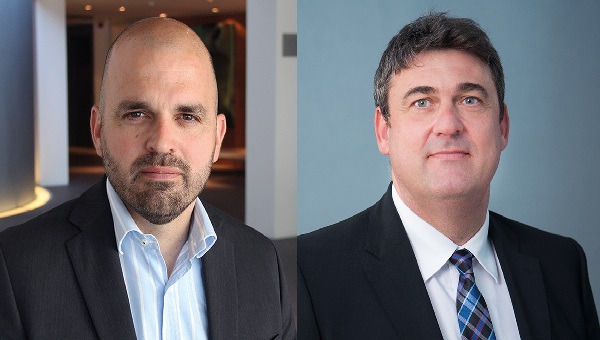 L-R: Stephan Tilquin, Partner and Talent Leader at Deloitte Luxembourg; Basil Sommerfeld, Partner and Leader of Operations Excellence & Human Capital at Deloitte Luxembourg;
Credit: Deloitte Luxembourg
L-R: Stephan Tilquin, Partner and Talent Leader at Deloitte Luxembourg; Basil Sommerfeld, Partner and Leader of Operations Excellence & Human Capital at Deloitte Luxembourg;
Credit: Deloitte Luxembourg
In its 2019 Global Human Capital Trends report, “Leading the social enterprise: Reinvent with a human focus,” Deloitte has examined ways in which organisations can reinvent themselves on a broad scale.
Nearly 10,000 respondents in 119 countries completed Deloitte’s ninth annual Global Human Capital Trends report. These respondents emphasised the important role of the social enterprise and noted a positive link between leading the social enterprise and an organisation’s financial performance. In this context, the report also showed that organisations leading the social enterprise are moving beyond mission statements to help personalise the workplace and bring back human identity and meaning to workers.
The future of the workforce
This focus on the workforce emerged as more than 86% of respondents cited reinventing the way people learn as "important" or "very important", making this the No. 1 trend for 2019. Leading organisations are empowering individuals’ need to continuously develop skills by investing in new tools to embed learning not only into the flow of work, but the flow of life. With the need to sustain 50-60 year careers as part of a 100-year life, lifelong learning has evolved from a matter of career advancement to workplace survival. However, even with this emphasis on learning, only 10% of respondents said their organisations were “very ready” to address this topic.
In addition, 64% of respondents cited automation technologies as "important" or "very important". Yet even with these advancements, human skills remain critical to augmenting the value of this technology. In response, the report suggests that organisations should consider redesigning work into a new category of “superjobs,” which combine the work and skill sets across multiple domains, opening up opportunities for mobility, advancement and the rapid adoption of new skills desperately needed today.
Commenting on this, Stephan Tilquin, Partner and Talent Leader at Deloitte Luxembourg, stated: “Adapting to the trends and changes around us is vital in the skillset in today’s workforce. To enable this, organisations should place emphasis on the importance of tailored learning, as well as actively employing profiles with strong tech knowledge."
The importance of internal, enterprise-wide talent mobility has become paramount. In 2019, three-quarters (76%) of survey respondents believed new tools and models for careers and internal mobility were "important" or "very important". And yet, despite investing billions in HR technology, 65% of respondents reported that this technology was "inadequate" or only "fair" at achieving its overall objectives.
The future of the organisation
Regarding the employee experience, only 49% of respondents believed that their organisations’ workers were "satisfied" or "very satisfied" with their job design and only 42% thought that workers were" satisfied" or "very satisfied" with day-to-day work practices. Similarly, as organisations look to provide technology to support employees’ work, only 38% of respondents said that they were "satisfied" or "very satisfied" with the current work-related tools and technology available. Finally, another 38% thought that they have enough autonomy within their jobs to make good decisions, providing further evidence that significant reinvention is required.
81% percent of survey respondents believed that “21st-century leaders” face unique challenges and requirements, making it critical, according to the report, for organisations to extend leadership pipelines to find and build leaders from within the organisation. According to Basil Sommerfeld, Partner and Leader of Operations Excellence & Human Capital at Deloitte Luxembourg: “Leaders have a duty to encourage a collaborative and supportive environment for their employees. [...] To avoid the possible detrimental effects this traditional employee experience appears to inject into an organisation, we must shift our view to the new category being referred to as the ‘human-experience’."
Underlying this shift is the continued reinvention of the traditional hierarchical organisational model. One-third (31%) of respondents said their organisations now operate mostly in teams within a hierarchical framework and another 46% said that they are somewhat team-based. However, most C-suite leaders, tools, cultures and incentives are still struggling to adopt and support the team-based model.








